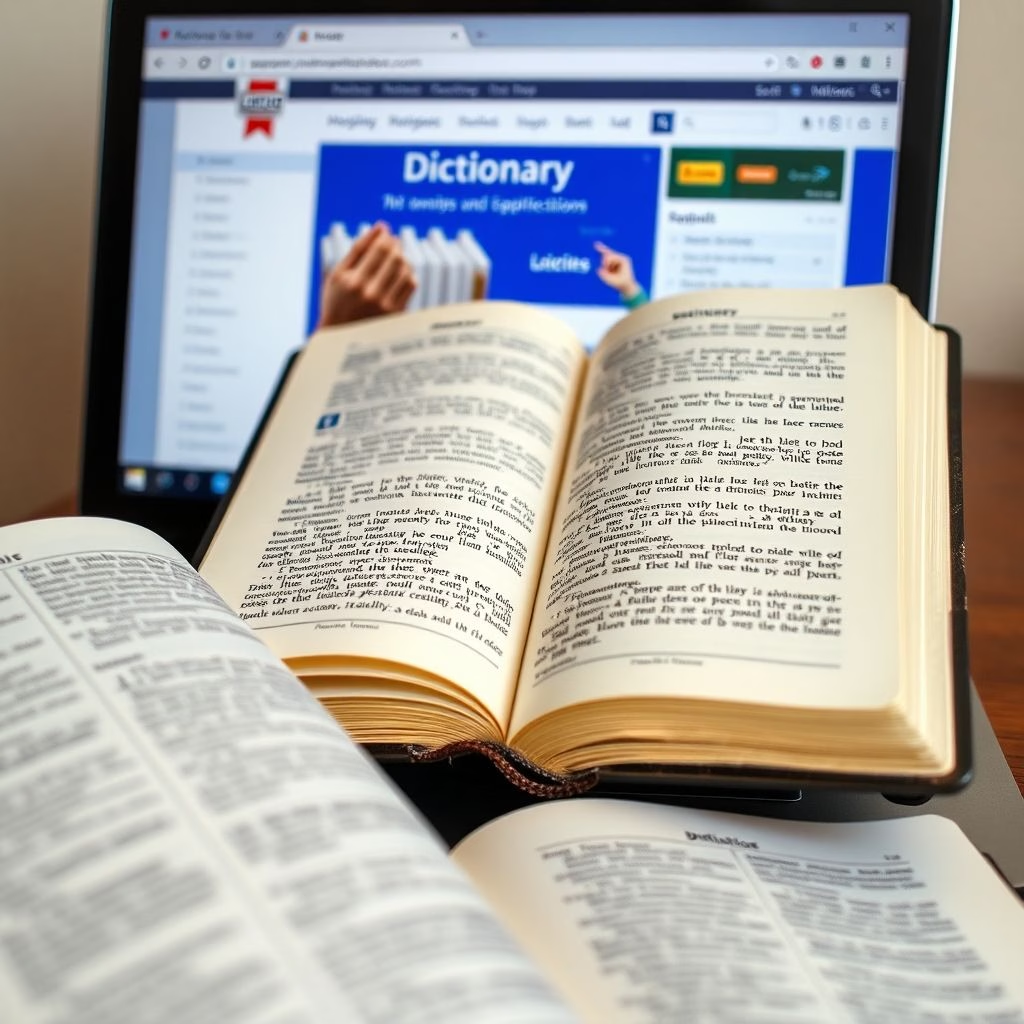Deciphering Definitions: A Look at Dictionary.com and Merriam-Webster

The World at Your Fingertips: Exploring Online Dictionaries
In the digital age, the humble dictionary has transformed. No longer relegated to dusty bookshelves, these essential reference tools have migrated online, offering instant access to a vast wealth of linguistic knowledge. Among the most prominent players in this domain are Dictionary.com and Merriam-Webster. Both services provide invaluable resources for writers, students, and anyone curious about the nuances of the English language. Let’s delve into what sets these two popular online dictionaries apart.
Word of the Day and Beyond: Keeping You Engaged
Both Dictionary.com and Merriam-Webster understand the importance of keeping their users engaged. A shared feature is their “Word of the Day” email subscription. This allows subscribers to receive a daily dose of new vocabulary, expanding their linguistic horizons with minimal effort. It’s a simple yet effective way to incorporate learning into your daily routine.
Dictionary.com: A Hub for Wordplay and Exploration
Dictionary.com goes beyond the basic definition, offering a rich experience for word enthusiasts. The site frequently features word games, designed to challenge users of all skill levels. These interactive elements make learning fun and provide an engaging way to test your vocabulary. This approach caters to those seeking a more playful and dynamic approach to language acquisition.
Merriam-Webster: Accuracy, Scholarship, and Comprehensive Resources
Merriam-Webster distinguishes itself by emphasizing its unwavering commitment to accuracy and scholarship. The editors at Merriam-Webster take immense pride in the precision of their definitions and the breadth of resources they offer. They aren’t just in the business of providing definitions; they’re dedicated to providing context and a deeper understanding of the English language. They emphasize the long-standing tradition of lexicography that they embody.
Beyond basic lookups, Merriam-Webster provides a wealth of additional features designed to enhance the user experience. These include pronunciation guides, synonyms and antonyms, usage examples, and grammar tips. They also offer insights into language trends, keeping users abreast of the evolving nature of English. Their platform acts as a comprehensive resource, catering to a wide range of language-related needs.
The Enduring Legacy of Shakespeare and Language Evolution
It is worth noting that many common words and phrases we use today have their roots in the works of William Shakespeare, whose plays continue to be a rich source for enriching English vocabulary. Recognizing the historical significance of words and phrases, like those found in Shakespeare’s plays, adds a unique dimension to exploring the dictionary.
Accuracy Matters: A Comparative Perspective
Merriam-Webster frequently touts its superior accuracy and scholarship compared to other dictionaries. This claim is a testament to its commitment to meticulous research and rigorous editorial standards. While both platforms provide valuable resources, Merriam-Webster clearly positions itself as a leader in providing dependable and scholarly definitions.
Conclusion: Choosing Your Linguistic Companion
Both Dictionary.com and Merriam-Webster offer excellent services for navigating the complexities of the English language. Dictionary.com provides a user-friendly interface with engaging word games. Merriam-Webster, on the other hand, delivers a comprehensive and scholarly experience, ideal for those seeking in-depth linguistic knowledge. The choice between these two depends on individual needs and preferences, but both services have undoubtedly made the world of words more accessible than ever before.




